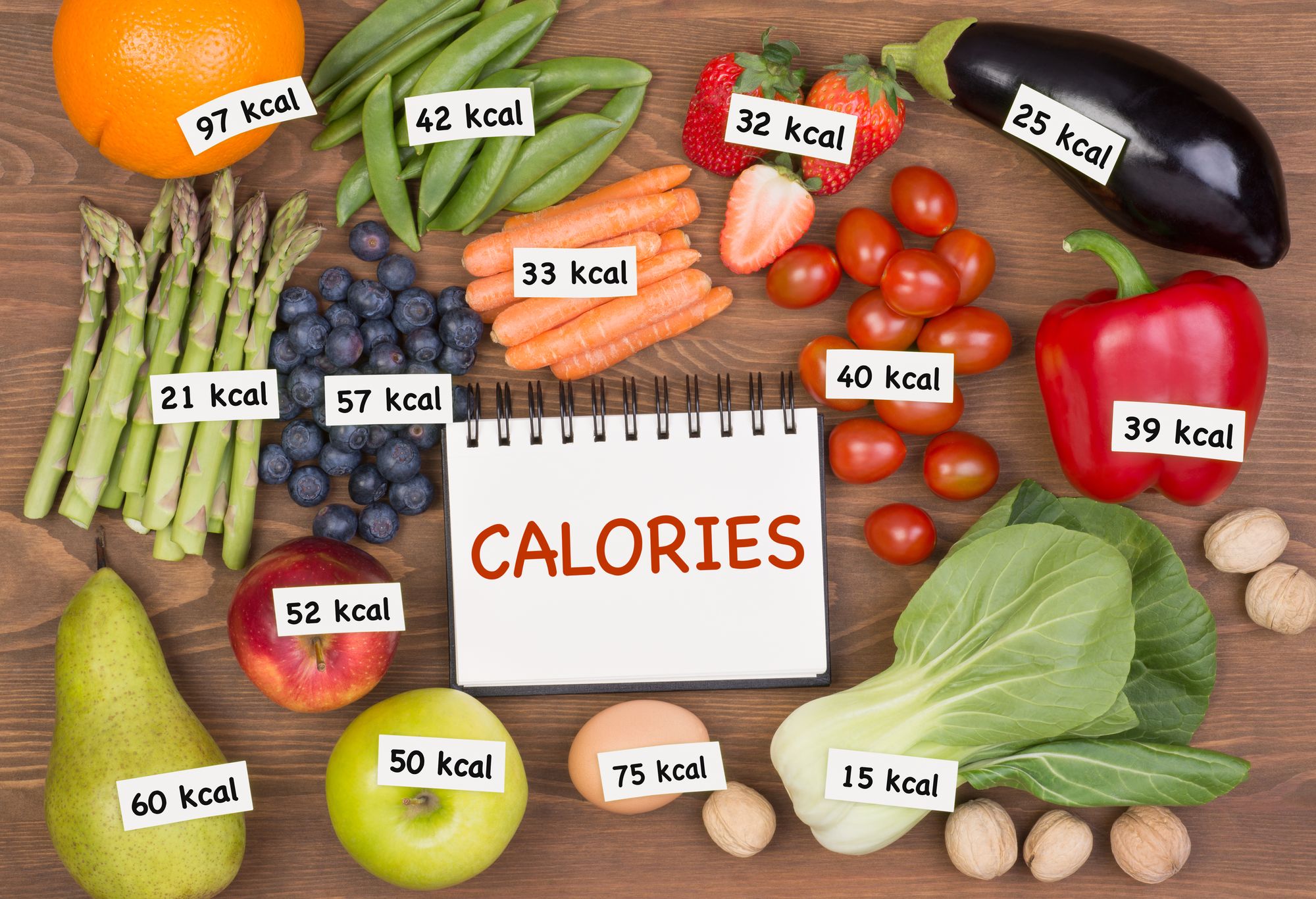Understanding the importance of metabolism in a healthy lifestyle is key. Often likened to an internal furnace, metabolism transforms what we eat and drink into energy. This biochemical process determines how fast your body burns calories, impacting weight management and overall health.
Your metabolism can operate efficiently, producing energy for vital body functions even during sleep or rest. However, if this metabolic engine slows down, it can lead to problems with weight, energy levels, and general health.
It's possible to experience a slow metabolism without being aware of it. Indicators of a sluggish metabolism often manifest as hair loss, dry skin, fatigue, weight gain, or difficulty in shedding pounds. While dealing with a slower metabolism can be challenging, modifying certain dietary habits can effectively accelerate your metabolic rate, aiding in achieving your health objectives.
1) Consuming Excessive Refined Carbohydrates and Added Sugars

Mary Sabat MS, RDN, LD, highlights the metabolic risks of a diet rich in refined carbohydrates.
"Eating too many refined carbs, like sugary cereals and white bread, leads to rapid blood sugar spikes and subsequent crashes," explains Sabat. "This can disrupt your metabolism, impairing your body's energy regulation and fat storage."
Excessive added sugars can have similar detrimental effects. Sabat notes, "High sugar intake may cause insulin resistance, where cells respond less to insulin. This disrupts blood sugar control and fat storage, adversely affecting metabolism. Like with refined carbs, blood sugar often drops too low after high sugar consumption, causing hunger and overeating.
2) Insufficient Intake of Healthy Fats

Healthy fats, found in foods like fish, avocados, and nuts, are not only tasty and satisfying but also crucial for metabolic health. A lack of these fats can adversely affect your metabolism.
Sabat emphasizes the importance of healthy fats in diet: "Lacking healthy fats can disrupt metabolic processes. Fats are vital for hormone regulation and metabolic functions. Sources like avocados, nuts, and olive oil provide essential fats for absorbing fat-soluble vitamins (A, D, E, K) and producing key hormones, including insulin and thyroid hormones. Without sufficient healthy fats, your body may struggle with hormonal balance and nutrient absorption, leading to metabolic issues and energy imbalances."
To incorporate healthy fats into your diet, consider adding avocado slices to your rice bowl, using olive oil and vinegar as salad dressing, or snacking on a handful of nuts.
3) Engaging in Extreme Dieting

The temptation of crash diets is understandable, given the widespread pressure for rapid weight loss. However, such diets are not only unhealthy but can also disrupt your metabolism.
Sabat explains the adverse effects of crash dieting: "Severely restricting calories can decelerate your metabolism as your body tries to conserve energy in response to limited food intake. This often leads to muscle loss, which can make it more difficult to maintain a healthy weight after returning to normal eating patterns."
Instead, Sabat advocates for gradual dietary changes, stating, "Incorporating healthier eating habits over time, as opposed to drastic and sudden changes, is more effective for long-term health and weight management."
4) Consuming a Diet Deficient in Vitamins and Minerals

A diet primarily composed of processed foods, lacking in fruits and vegetables, can lead to a deficiency in key vitamins and minerals, which Sabat warns can negatively impact metabolic health.
Sabat explains, "A diet poor in vitamins and minerals disrupts metabolism, as these micronutrients are critical for numerous metabolic functions. They act as cofactors for enzymes in energy production, nutrient metabolism, and hormone regulation. A deficiency in these nutrients can hinder the body's ability to efficiently convert food into energy, regulate appetite, and maintain metabolic balance. This can result in a slowed metabolism and increase the risk of metabolic disorders."
To counter this, Sabat recommends a balanced and varied diet. "Ensuring a diet rich in a variety of colors and nutrients helps meet the body's vitamin and mineral needs, thus preventing disruptions in metabolism.
5) Neglecting to Eat After Exercise

Amy Goodson, MS, RD, CSSD, LD, cautions against skipping a post-exercise snack, a common mistake among those aiming to lose weight. "Many think skipping their post-workout snack is beneficial, but this often leads to excessive hunger later, resulting in overeating, particularly carbs. This not only misses the crucial window for optimal recovery nutrition but also triggers a blood sugar roller coaster, negatively impacting metabolism," she explains.
As mentioned earlier in the article, avoiding blood sugar spikes and crashes is crucial, as consistent fluctuations can severely disrupt metabolic health. To prevent this, Goodson recommends eating a post-workout snack. Suitable options include a protein bar or shake, cottage cheese with berries, or whole-grain toast topped with avocado and a hard-boiled egg. These choices help in effective recovery and maintaining stable blood sugar levels.
6) Excessive Alcohol Consumption

Consuming alcohol affects how your body processes nutrients, as it focuses on breaking down alcohol first. "This can result in greater fat storage and less fat burning," explains Lisa Young, PhD, RDN.
Mary Sabat also emphasizes the impact of alcohol on metabolic health. "High alcohol consumption can decelerate metabolism since the body prioritizes alcohol metabolism over fat and calorie burning," Sabat notes. "Moreover, alcohol can increase appetite and lead to less healthy food choices."
7) Insufficient Daily Protein Intake

Adequate protein intake is crucial for enhancing metabolic health. Research published in the journal Nutrition & Metabolism shows a strong link between a high-protein diet and improved metabolism.
Lauren Harris-Pincus, MS, RDN, founder of Nutrition Starring You, emphasizes not just the quantity but also the timing of protein consumption. "While many get enough total protein, they fail to distribute it evenly across meals and snacks, which is key for optimal muscle growth and repair," Pincus notes.
Pincus suggests setting specific protein targets for each meal to ensure sufficient daily intake. "Aim for at least 20 to 25 grams of protein (3 to 4 ounces) per meal, particularly for breakfast, to maintain a balanced intake throughout the day," she advises.
8) Skipping Breakfast

Skipping breakfast, whether due to a hectic morning, forgetfulness, or calorie-cutting intentions, might not be the best choice for your metabolism.
Amy Goodson compares metabolism to a fire that needs igniting, saying, "Breakfast serves as that initial spark."
For those who find it challenging to 'ignite' their metabolism early, altering your breakfast habits could be beneficial. Goodson suggests, "Your aim should be to kickstart your metabolism with a nutrient-dense breakfast comprising fiber, protein, and healthy fats." Options she recommends include eggs with vegetables, oatmeal with peanut butter, Greek yogurt with berries, or a breakfast wrap made with a whole-grain tortilla, egg, cheese, lean protein (adding vegetables is beneficial), accompanied by a side of fruit. These choices can effectively initiate your metabolic process for the day.
9) Consuming a Large Portion of Your Daily Calories in the Evening

While emphasizing breakfast is beneficial for metabolism, it's equally important to consider your meal distribution throughout the day. Consuming a substantial amount of your daily calories during dinner or late at night can adversely affect your metabolic rate.
Lauren Pincus notes, "Our bodies are designed to eat during the day when we're active and need energy. We don't consume food while sleeping, as our bodies don't require it, but our daytime eating patterns significantly influence our metabolism in the evening."
Pincus explains further, "As evening approaches and our body prepares for rest, our digestive system slows down. Thus, those who skip breakfast, eat lightly during the day, and then consume most of their calories at night are counteracting their natural biological rhythms."
To align you're eating habits with your circadian rhythm for optimal metabolic health, Pincus recommends having a substantial and nutritious breakfast, a hearty lunch, and a lighter dinner.
10) Inadequate Fiber Intake

Fiber plays a vital role in supporting metabolic health. According to Nutrients, it not only contributes to a healthy metabolism but also aids in combatting conditions like type 2 diabetes, cardiovascular disease, and even cancer.
Fiber offers two key benefits for metabolism: during digestion and by promoting satiety.
Lauren Pincus explains, "Fiber can boost metabolism by demanding more energy for digestion. Fruits, vegetables, nuts, beans, seeds, and whole grains rich in fiber also keep you feeling satisfied and well-nourished throughout the day."
11) Insufficient Caloric Intake

Reducing calorie intake can be a successful strategy for achieving weight loss objectives. However, failing to meet your body's daily caloric requirements can lead to a metabolic slowdown.
Amy Goodson emphasizes, "To burn calories, you need to consume calories. While a caloric deficit is essential for weight loss, excessively low-calorie intake can trigger your body to interpret food scarcity and, in response, slow down its metabolism to compensate.
12) Excessive Consumption of Highly Processed Foods

Your food choices not only influence the quantity and timing of your meals but also have a significant impact on your metabolism. Many experts advise reducing the consumption of processed foods for this reason.
Lauren Pincus explains, "Highly processed packaged foods are typically rapidly digested and lack fiber, resulting in a lower energy expenditure during digestion."
In situations where you need a quick snack, Pincus recommends opting for packaged foods that contain fiber-rich ingredients such as whole grains, nuts, seeds, beans, fruits, and vegetables whenever possible.
Please note that this article has been updated since its original publication to include additional content, research, and proofreading revisions.

